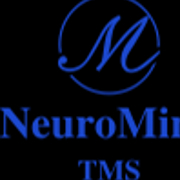What is Depression?
Depression is a common but serious mood disorder that can affect anyone, regardless of age, gender, race, or socioeconomic status. It is characterized by persistent feelings of sadness and loss of interest in activities that were once enjoyable. Other symptoms may include changes in appetite, sleep, energy levels, concentration, and self-worth. Depression can significantly interfere with a person’s ability to work, study, sleep, and enjoy life.
Causes of Depression:
The exact causes of depression are not fully understood, but it is thought to be caused by a combination of genetic, biological, and environmental factors. Some of the things that can increase the risk of developing depressi...
What is Depression?
Depression is a common but serious mood disorder that can affect anyone, regardless of age, gender, race, or socioeconomic status. It is characterized by persistent feelings of sadness and loss of interest in activities that were once enjoyable. Other symptoms may include changes in appetite, sleep, energy levels, concentration, and self-worth. Depression can significantly interfere with a person’s ability to work, study, sleep, and enjoy life.
Causes of Depression:
The exact causes of depression are not fully understood, but it is thought to be caused by a combination of genetic, biological, and environmental factors. Some of the things that can increase the risk of developing depression include:
• Childhood experiences, such as abuse or neglect
• Life events, such as the death of a loved one, divorce, or job loss
• Medical conditions, such as chronic pain or cancer
• Medications, such as steroids or some blood pressure medications
• Substance abuse
• Family history of depression
Depression is treatable. There are a variety of effective treatments available, including medication, nonmedication treatment Like TMS Treatment in Delhi, and lifestyle changes. If you are struggling with depression, it is important to seek professional help. With treatment, most people with depression can get better and live full and productive lives.
Symptoms of Depression:
• Sadness or loss of interest in activities once enjoyed
• Changes in appetite (weight loss or gain unrelated to dieting)
• Trouble sleeping or sleeping too much
• Loss of energy or increased fatigue
• Difficulty concentrating, remembering, or making decisions
• Feelings of worthlessness or guilt
• Thoughts of death or suicide
• Changes in physical appearance, such as changes in skin or hair
If you are experiencing any of these symptoms, it is important to seek professional help. Depression is a serious condition, but it is treatable. With treatment, most people with depression can get better and live full and productive lives. Depression treatments available in Delhi from The NeuroMind TMS NeuroMind TMS Services is a centre that specializes in providing services for depression, anxiety, OCD, and mental health treatment. The founder of the centre is Dr. Nazim Ali Idrisi.
How TMS Therapy Treatment Work for Depression, Benefits and Side-effects
TMS Treatment in delhi
Transcranial magnetic stimulation (TMS) is a nanomedicine procedure that uses magnetic fields to stimulate nerve cells in the brain. It is approved by the U.S. Food and Drug Administration (FDA) for the treatment of major depressive disorder (MDD) in adults who have not responded to other treatments, such as medication and psychotherapy.
TMS works by delivering short, powerful magnetic pulses to the brain. These pulses are thought to stimulate nerve cells in the prefrontal cortex, a part of the brain that is involved in mood regulation. TMS can be used to increase the activity of these nerve cells, which can help to improve symptoms of depression.
TMS is typically administered over a course of 20-30 sessions, which are usually done five days a week. Each session lasts about 30 minutes. TMS is generally well-tolerated, with few side effects. The most common side effect is a headache, which usually goes away on its own.
TMS is a safe and effective treatment for depression. It is not a cure for depression, but it can help to improve symptoms and improve quality of life.
Here are Some of the Benefits of TMS for Depression:
• It is a nanomedicine procedure, which means that it does not require surgery or incisions.
• It is generally well-tolerated, with few side effects.
• It can be effective for people who have not responded to other treatments, such as medication and psychotherapy.
• It can be used to treat people with severe depression, including those who are at risk of suicide.
Here are Some of the Risks of TMS for Depression:
• Headache
• Temporary scalp discomfort
• Rarely, seizures
If you are considering TMS treatment for depression, talk to your doctor about the benefits and risks. TMS is a safe and effective treatment for depression, but it is important to make sure that it is the right treatment for you.



